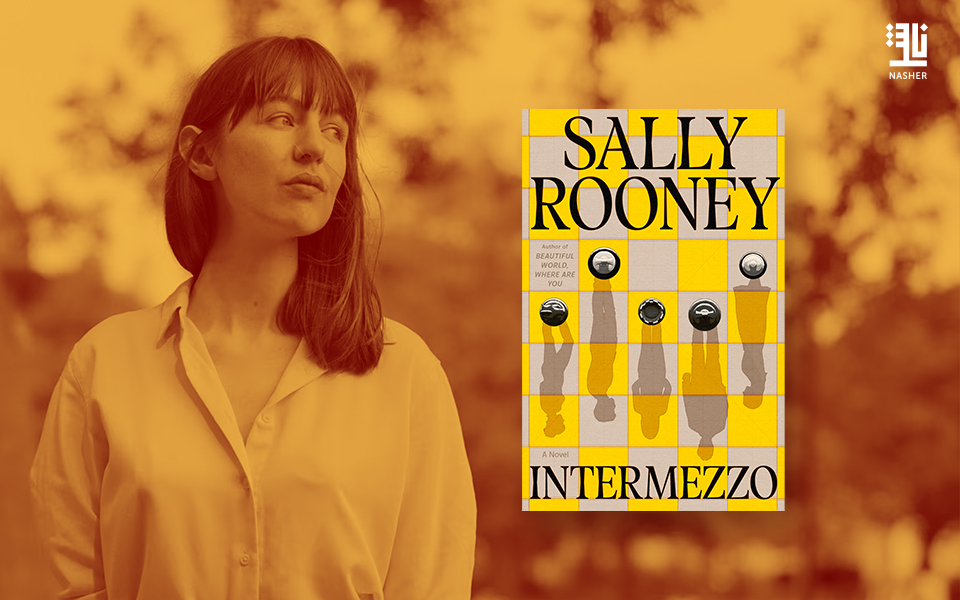There are chess pieces and chess boards in bookshop windows up and down the UK now as booksellers get behind Sally Rooney’s Intermezzo. The big city centre stores, like Waterstones Piccadilly or Foyles Charing Cross Road, have giant chess pieces provided by Faber; smaller chain stores and indies have more intimate displays – respect to those booksellers who have rummaged in attics and cupboards to find the perfect props.
Some windows show a moment of drama, the pieces frozen mid-game, allowing pavement Karpovs and Kasparovs to speculate on each side’s next move. Others show a guessed-at denouement, with the King on his side (incidentally, perhaps that should be ‘their’ side. Rooney’s King has to be ‘they/them’, for she is a modern author, aware of all those eager fans on social media, all those Roonettes on TikTok). Other windows show the four rows of massed ranks before the game, or the novel, has begun.
The success of Sally Rooney’s fourth novel raises the question of whether it will lead to a rush of chess-themed novels, or at least, chess-themed tables. Surely now would be a good time to display Stefan Zweig’s Chess and Nabokov’s The Luzhin Defence and obvious choices like Walter Tevis’ Queen’s Gambit, alongside Intermezzo and Rooney’s backlist (her powerful ‘pawns’ if you like).
For fun Irving Chernev’s classic guide Logical Chess could also be included. The latter was first published in the UK in 1969 by Rooney’s current publisher, Faber. I can still remember the vertical message on the righthand side of the cover. ‘Faber Papercovered Edition’. Papercovered! Covered with paper! Amazing that this was deemed worth shouting about back then.
In the Seventies, the original Foyles on Charing Cross Road was the place to buy chess books. Its ‘Batsford room’ on the third floor was like a temple to the game. It stocked the entire collection of Batsford’s chess list, the house then (still?) the pre-eminent chess publisher of the time. I tried to find Logical Chess (now Batsford) in Foyles the other day, but to no avail. What was once a whole shop-within-a-shop is now just a single shelf. One can understand it though. The Net has taken the specialist subject market, and the game is arguably less popular than it was anyway. The Cold War battles between Fischer (namechecked on page 26) and Spassky seem far away now, and chess problems in newspapers have long given way to Sudoku and Wordle et al.
In Intermezzo readers don’t have to wait long for the first mention of a piece and square. ‘What did they have to say to each other?’ wonders Naomi on page 8. ‘Nice little outpost for the knight at d5, was it?’
My younger self would have baulked at the algebraic notation here. I preferred the more traditional – and literary? – style of the descriptive notation that that was used until the 1980s, Queen to King’s Bishop 4 and such like. In 1981 the International Chess Federation stopped recognizing descriptive notation, and algebraic notation became the official ‘language’ since it was deemed simpler to read, write and understand. But old style analogue notation did it for me.
En passant (ha! one for lovers of the game) I spent some of my gloriously square youth in the Seventies at Croydon Chess Club (ah, be still my beating heart), which met in a church hall just a rook’s throw from the Whitgift Centre mall. Why mention this? Because the Whitgift Centre is where I later joined Websters, which later had a spell as Sherratt & Huges and is now Waterstones. Among the staff at Sherratts in the Eighties was a young man called Stephen Page. Yes, that’s right, that Stephen Page, now of course, Rooney’s publisher at Faber. Only connect.
Page’s time at Sherratts could be described as his own intermezzo, in fact, before the main theme of his career took shape. In music intermezzo refers to a short connecting piece before the main theme emerges. In chess an intermezzo is an ‘in-between move’, an unexpected move that poses a severe threat and forces an immediate response. The chess version of the pre-emptive offer if you like.
With Intermezzo, Rooney seems to have acquired the status of a literary Grandmaster with reviews to die for. Sadly she won’t be able to see every game in every bookshop simultaneously – as Ivan does at the chess tournament in Lietrim – but hopefully Faber will send her the pictures.







